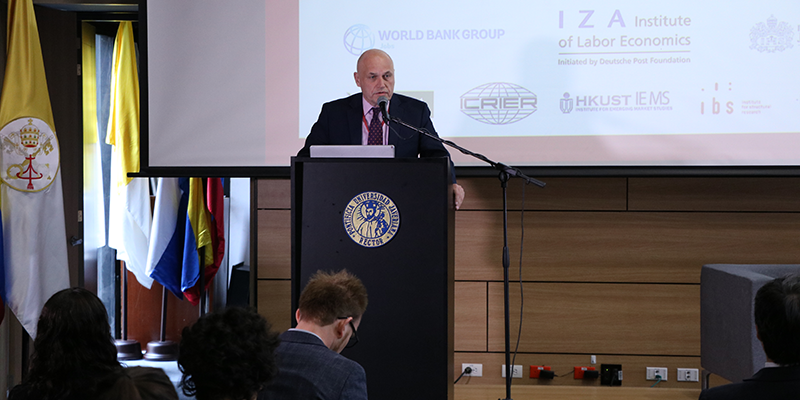Almost 100 economists, researchers, and policy-makers from 25 countries joined the second edition of the Jobs & Development Conference in Bogota, Colombia, on May 11th and 12th, 2018. For two days, the Conference presented the latest policy-relevant research to help address jobs challenges around the world, aiming to promote dialogue and to stimulate scientific research to close knowledge gaps and enable evidence-based policies for global development.
No single country is left out of global jobs challenges. Youth unemployment, informality, the skills gap, demographic changes, and geographical mobility are reshaping one of the activities that has a bigger impact on our lives: work. Not to mention technology, which poses as many risks as opportunities in terms of creating jobs, reducing inequality, and connecting people to labor markets. Effective, evidence-based policies are urgently needed. And this Conference wants to contribute to bring solutions based on research and empirical evidence, featuring 85 papers out of the 204 presented to the call for papers. This research covers the most pressing issues on jobs based on the research on 21 countries from all the regions.
The 2018 Conference was jointly organized by the Institute of Labor Economics (IZA), the World Bank’s Jobs Group, and the Network on Jobs and Development (NJD), a partnership of five research institutes from various regions of the world. The Network encompasses the Development Policy Research Unit at University of Cape Town (DPRU, South Africa), the HKUST Institute for Emerging Market Studies (HKUST IEMS, Hong Kong), the Indian Council for Research on International Economic Relations (ICRIER), the Institute for Structural Research (IBS, Poland), and the Latin American and Caribbean Economic Association (LACEA). The event was held at the Pontificia Universidad Javeriana, in Bogota, who helped conect cutting-edge research with a new generation of students and researchers.




